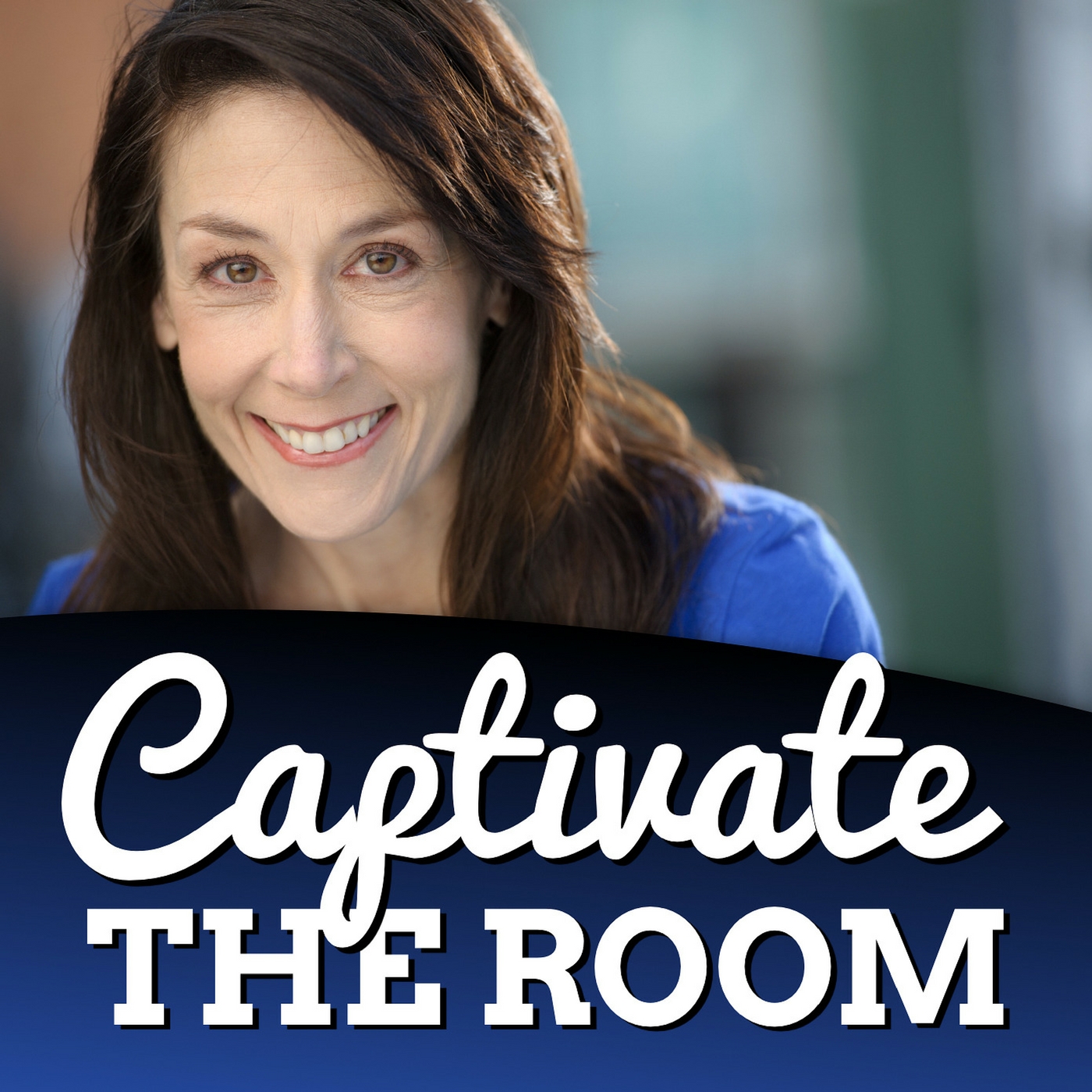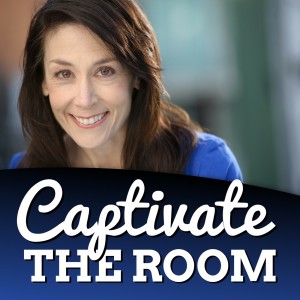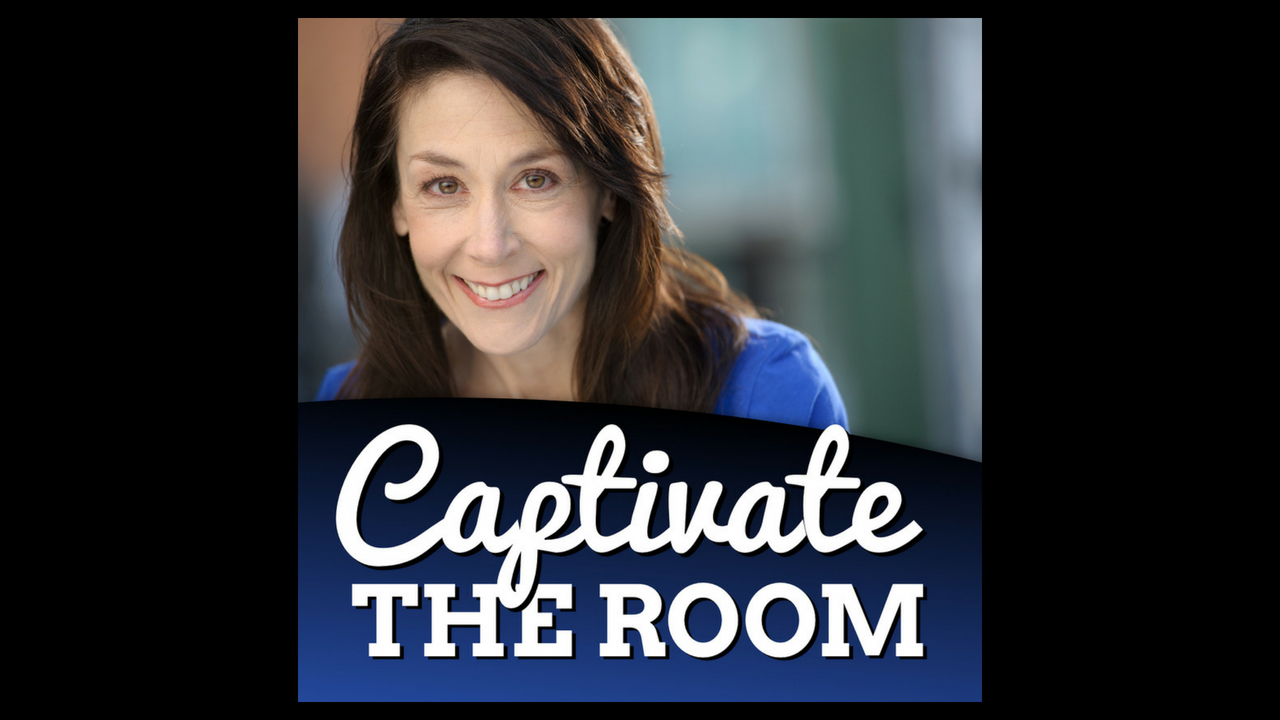
158.4K
Downloads
59
Episodes
Did you know we determine everything about you from your voice? If you want to captivate the listener and command the space with a voice that makes people listen, this podcast is for you. Join Internationally known voice expert Tracy Goodwin as she shows you how to amplify your authority with her signature methodology Psychology of the Voice® as she shows you how to unearth your voice stories so you speak with confidence, uncover the barriers that keep us from connecting, and unleash the power of your real voice so you captivate the listener from your first word.
Did you know we determine everything about you from your voice? If you want to captivate the listener and command the space with a voice that makes people listen, this podcast is for you. Join Internationally known voice expert Tracy Goodwin as she shows you how to amplify your authority with her signature methodology Psychology of the Voice® as she shows you how to unearth your voice stories so you speak with confidence, uncover the barriers that keep us from connecting, and unleash the power of your real voice so you captivate the listener from your first word.
Episodes

Tuesday May 20, 2025
Practice vs. Reps
Tuesday May 20, 2025
Tuesday May 20, 2025
Welcome to the show!
Make sure you don't miss my next free Masterclass Speak so they stay!
You can register here: https://www.captivatetheroom.com/stay/
General Overview
Conversation Summary: The speaker discusses the difference between "reps" and "practice" when it comes to improving one's speaking and presentation skills. [22:27] She argues that practice, where one repeatedly rehearses and drills content, can actually be detrimental and lead to being disconnected from the material. [25:49] Instead, she advocates for a "reps" approach, where one integrates the desired speaking techniques and tactics into their daily routine and conversations. [23:38] This allows the skills to become more naturally integrated and accessible.
Interviewee Background: The speaker is Tracy Goodwin, an internationally known voice expert and award-winning speaker who has taught hundreds of people around the world to improve their speaking and presentation skills. [29:25]
Key Points
-
The speaker is not a fan of traditional "practice" where one repeatedly rehearses content, as this can lead to being disconnected from the material and put the speaker in "retrieval mode" when delivering. [22:27]
-
Instead, she advocates for a "reps" approach, where one integrates the desired speaking techniques and tactics into their daily routine and conversations. [23:38]
-
Reps help the skills become more naturally integrated and accessible, rather than feeling like a separate "practice" activity. [23:37]
-
The speaker believes that warming up before a big presentation is also not necessary if one has properly integrated the desired speaking skills through reps. [10:01]
-
She suggests that each person has an optimal number of "practice" reps, often around 2-4, beyond which additional practice can be counterproductive. [14:57]
Notable Quotes
"I believe warm ups the same when these big names have walked up to me wanting to know about working with me, wanting to know information. [08:57] It doesn't even have to be big names. It could be anybody. Anybody blindside me? What comes out of warming up? [10:35] Why would I not want that in my muscle memory all the time?" (13:15)
"I want you to stop telling yourself you have to practice. [26:29] I believe warm ups the same when these big names have walked up to me wanting to know about working with me, wanting to know information. [08:57] It doesn't even have to be big names. It could be anybody. Anybody blindside me? What comes out of warming up? [10:35] Why would I not want that in my muscle memory all the time?" (13:15)
Kicker Quotes
"I want my people to speak from the internal and be observers of the external." (28:44)
Detailed Insights
Main Arguments:
-
Practice can lock in bad speaking habits and put the speaker in "retrieval mode" when delivering (13:15)
-
Reps, where one integrates techniques into daily conversations, is a better approach than traditional practice (23:37) [23:37]
-
Warming up before a big presentation is not necessary if one has properly integrated the desired speaking skills through reps (13:15) [10:01]
Supporting Evidence:
-
The speaker's own experience with her TED talk, where she exceeded her optimal "practice number" of 2-3 reps (14:12) [14:57]
-
A case study of a student who only practiced her talk 2-3 times and delivered an outstanding performance (19:50) [14:57]
Themes and Trends
Recurring Themes:
-
The importance of integrating speaking techniques into one's daily life through "reps" rather than isolated practice (throughout)
-
The limitations of traditional practice and warming up approaches (13:15, 14:12) [10:39]
Emerging Trends:
-
The concept of an optimal "practice number" unique to each individual, often around 2-4 reps (19:50) [14:57]
-
The idea of speaking from an "internal" place rather than relying on external cues (28:44)
Interview Dynamics
Interview Flow:
The speaker starts by introducing the topic of "reps vs. [23:37] practice" and then goes into a detailed explanation of her perspective, using examples and personal anecdotes to illustrate her points. The flow is clear and logical, with the speaker building her case methodically.
Question Analysis:
The speaker appears to be responding to a previous question or request from a client to discuss the difference between reps and practice. [23:37] She does an effective job of thoroughly addressing the topic and providing a clear framework for understanding her approach.
Context and Background
Contextual Information:
The speaker is a voice expert and presentation coach who has worked with many clients to improve their speaking and presentation skills. She is drawing on her extensive experience and research in this area.
Related Events:
The speaker references her TED talk experience as an example of when she did engage in more traditional "practice", but notes that this was an exception due to the specific requirements of that event. [14:55]
Potential Impact:
If listeners adopt the speaker's "reps" approach, it could help them become more naturally comfortable and confident in their speaking, without the potential pitfalls of over-rehearsing. [23:37] This could lead to more authentic and impactful presentations and conversations.
Follow-Up Questions:
-
Can you provide more specific examples of how one can integrate "reps" into their daily routine and conversations? [23:38]
-
How does one determine their optimal "practice number" for a given presentation or speaking scenario? [15:14]
-
What are the key internal shifts or mindset changes that you believe are necessary to truly speak from an "internal" place rather than relying on external cues? [08:43]
-
How can one overcome the tendency to want to over-rehearse and practice, especially for important speaking engagements?

No comments yet. Be the first to say something!